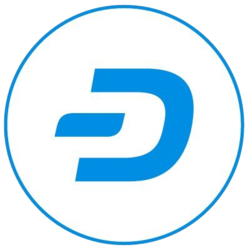Anna Tutova spoke with Trevor Koverko, the CEO and co-founder of Polymath. Trevor was successful in sports, playing for Canada in the NHL, and then became interested in cryptocurrency, buying his first bitcoin for $20. In an interview, the former hockey player told how he came up with the idea of creating Polymath, and what challenges the industry faces in his opinion.
Anna: Hello, everybody! And today we’re pleased to have Trevor Kovarko, founder of Polymath, a security token issuance platform, on our channel. Great to have you here today, Trevor.
Trevor: Thanks, Anna. Great to connect, I’m excited to chat. This is really fun.
Anna: Yeah, so can you tell us about your journey as an entrepreneur? And how from an ex-hockey player you ended in the business sector?
Trevor: Yeah, no, that was my first career, and I always joke when people ask me why
I stopped playing hockey. I say, the coach called me in one day and he said “Son, you’re just too good and we have to let you go” But no, that was kind of my identity growing up in Canada, it’s a very serious thing. I moved away when I was like 16-17 years old. And, you know, the other joke is if you don’t play hockey in Canada you get deported, because it’s such an important part of the culture here.
But no, I kind of went, that was my identity, that’s all I did. I did a bit of school and things like this, but that was kind of what I was known for. And then I was in a car accident that kind of abruptly ended my career. So I had to kind of reimagine myself and find a new identity after an injury, kind of caused my career to end. And at the time, I was kind of looking at a lot of different things because I didn’t know what I wanted to focus on. I went back to business school, so I was kind of going down that path. And then crypto kind of came up on the scene. And I was very lucky because not only being in certain circles allowed me to learn about bitcoin super early, and kind of 2011-2012.
Anna: Oh, that’s quite early, you’re a pioneer.
Trevor: Yeah, no, I was super super lucky. Just some of the groups I was in were talking about it, and I was kind of hanging out in those circles. And then in 20 (I want to say 2015-2016) Ethereum was kind of emerging. And this was a new project, there was a lot of excitement behind it, and I was just, you know, super lucky to be in Toronto at the time right in my backyard here (and that’s where Vitalik was from and a lot of the other co-founders of ethereum were from). And that was kind of when I decided “Hey, this is something I really am excited about and I want to kind of dedicate the next phase of my life to” And that was the first kind of part of my journey to crypto.
Anna: And when did you buy your first crypto? Was it bitcoin or was it something else?
Trevor: 2012 November, I bought one bitcoin on Ebay for 20 bucks. So, that was my big conviction moment, it was 20 whole dollars to buy a bitcoin back then.
Anna: This is quite interesting that bitcoin was sold on Ebay at those times.
Trevor: Yeah, it was a different world, you know. The infrastructure wasn’t there, and I didn’t know the difference between cold storage and, what not, and hot wallets. So, I just said “Hey, what the heck someone on ebay is selling it with a good rating, so that’s good enough for me” And I actually took that one bitcoin and invested it into the Ethereum crowd-sale for, I think, two thousand each, is what you got. So to this day I still hold those eath as kind of a an ornament or a shrine to me learning about crypto. And I’m very grateful for the Ethereum team for kind of really educating me on what’s possible with Blockchain.
Anna: Oh, you made a quite right decision with investing into Ethereum. And what did you make excited about crypto, about Blockchain?
Trevor: You know, for me it was a very singular thing because there’s a lot of exciting things about crypto. There’s not one vertical, there’s like dozens that are disrupted and benefited from Blockchain.
But to me, you know, coming from the business world, it was always the financial system and the complex kind of intermediaries of Wall Street and all the rent seekers ( I call them that kind of clip fees along the way). And just how it kind of hurts the little guy, hurts the consumer hurts the developing world in a lot of ways. So I just saw the potential for Blockchain to really streamline and make the financial system a lot more open, transparent and efficient. And that’s really what got me excited about it, and it kind of dovetailed into the project that I’ve been working on since 2017.
Anna: So, can you tell us how the idea of starting Polymath came to you?
Trevor: Yeah. So, Polymath is my project and our team’s project, and our communities project that we’ve been working on really hard since Q4 of 2017. And again, the community has been the thing that’s been driving the project, and I’ve been very very excited and lucky to have such an engaged community and team. And you know, for me it was very organic how this project started. I was running a private equity fund in 2015. And we woke up one morning and we said “Hey, wouldn’t it be fun if we could tokenize our fund?” And at the time there was maybe one or two other examples of tokenized assets like real financial assets. And we said “Hey, maybe we could do that too?” And you know, we could take our fund and upgrade it to the Blockchain. And we didn’t really fully understand the benefits and the cost of doing it. But it sounded something that was worth looking into.
So we started exploring it, and we realized it was really hard and almost impossible to do it legally, actually, because security tokens weren’t really a thing back then. And there was no way to really restrict unauthorized investors, so like unaccredited investors or people that are on a banned list of some kind from holding a security token. So basically what that means is securities laws in the financial system and crypto, which is open, and the permission list didn’t really reconcile very well. So we saw an opportunity to build a platform that tried to address this and try to make it not only possible but easy to launch a tokenized asset of some kind. So tokenized real estate, tokenized stocks, tokenized bonds, tokenized derivatives, tokenized art, you know ,high net worth individual assets like things like this.
And our vision was “Hey, maybe one day in the future when all these pieces of infrastructure are online, we could have this concept of a global financial system where everything is interoperable, and smart contracts make compliance easy across jurisdictions”. And we have much more liquidity and much more efficiency, and much more democracy in the financial world. So that was kind of our big vision since day one. And that’s what’s been driving us kind of since the beginning.
Anna: That’s quite interesting. And how do you see the current security token landscape? What are the biggest use cases now? What are the most successful projects launched on Polymath?
Trevor: Yeah, exactly. You know, it’s been a really exciting year. Since 2011 we’ve been talking about the promise of security tokens, and it’s taken some time to really develop the infrastructure where it’s possible to realize the benefits of it. But I’m very happy to say that this year has been a huge growth cycle for security tokens since January of 2020. The market has been doubling every month, so there’s a data feed we look at on stomarket.com, which is kind of like the coinmarketcap.com for security tokens, and it tracks kind of the growth of the industry. And pretty much every month since January it’s been doubling the market. So it’s still small because the number was so small when it started but you can see the exponential growth. And borrow from my previous profession the hockey stick is starting to form in the chart, and volume.
So that’s the market cap of security tokens. And if you look at the volume which in some ways is even more important than market caps according to some people, it’s been growing even faster, tripling a lot of months this year. So the growth, you know, I’m not saying that’s gonna happen forever but we’re starting to see that exponential growth happening. And it’s super super exciting because we’re seeing every day, you know, multiple times a day new announcements coming up from new security token offerings, from new security token secondary exchanges, from new folks getting licenses and, you know, transfer agents and ats licenses, and all these important pieces of legal infrastructure that are going to allow these businesses to function is really really exciting. And what we’re trying to do is really be the connective tissue between all these different pieces of infrastructure that are coming online.
Anna: But actually from what I see for the interest in security tokens like the purpose is to democratize the access to these financial instruments which are not liquid if not to make security tokens. But what I see is that there is quite big interest from institutional investors and even security token-focused conferences have little bit different crowds, there are more institutional guys and the suits etc are not like usual crypto community.
Trevor: Yeah, that’s it’s a good insight, there’s a lot, there’s this kind of collision between the cyberpunks and the protocol authors that are building this new revolution. And then there’s the kind of Wall Street folks that are coming in and seeing “Hey, we can actually…” There’s a lot of interesting things happening here in the De-Fi world and in security tokens. So it i think, it’s great, I think, it’s really interesting to see these two kind of worlds collide. And I think, so far it’s been really fruitful, you know, we’re seeing record volumes and in these industries record collaborations, you know, record partnerships signed between all these existing financial kind of legacy firms and all these new decentralized crypto firms. If they’re not signing deals (because it’s hard to sign a contract with a decentralized organization) but they’re still integrating with these protocols directly and experimenting with them. So, I’m really encouraged by that.
Anna: And we see the connection of decentralization, I can’t ask these questions, but what do you think about DeFi? Do you invest into any De-Fi projects?
Trevor: I’m super super excited about it. And to be honest, the thing that’s most exciting to me is just the quality of the founders of these projects. And it’s kind of weird because they hand the control over to the community. That’s the whole point of having a De-Fi project is that it’s community-owned, like literally it’s owned by the community in the form of of tokens, sometimes governance, sometimes other forms of tokens. But the founders of these tokens… I was just like reading into, you know, Andrei from Yield what Y-Fi and Robert Lechner at Compound. And the kind of the top De-fi projects are really run by solid teams, by solid founders who have, (I think, Dimitri, Vitalik’s dad, tweeted out) they have hearts of gold, and I totally agree with that. Like it’s not the first wave of crypto, where everyone was just trying to raise record amounts of money and they’re literally, you know, saying ‘no’
to that, and they’re giving the value back to the community in very fair and transparent ways.
And to me what’s most exciting is just the quality of people that are coming into the space and the leaders ( that we have we’re very lucky to have it), and the leaders that are really solid are the ones that are winning. They have kind of the network-effect-enabled protocols that are gaining deeper liquidity pools and gaining more developer adoption and things like this. So, it’s just super bullish and in my opinion that’s the most important thing.
Anna: But still there are a lot of projects which have anonymous teams like, for example, with Sushi Swap we had quite a big boom.
Trevor: It’s definitely buyer beware, and I would advise everyone to kind of sit out the crazy speculative stuff here and focus more on the long-term development metrics of these protocols and usage. But yeah… No, I think it’s a really interesting, dynamic, that’s playing out. You have some centralized companies and some decentralized, some really powerful charismatic founders and some are more anonymous. And I don’t think the fact that it’s anonymous makes it a negative thing. I mean, Bitcoin was founded by an anonymous person, and it’s just going to be interesting to see how this plays out in the next kind of decade or two.
Anna: Yeah, I agree with you. And getting back to Polymath, what are the biggest challenges for you right now?
Trevor: You know, so without getting kind of too much in the weeds, we really made a big bet as a community into our new layer-one blockchain called Polymesh. So, not to confuse people but we have Polymath, which was our original project that we launched on top of Ethereum, and then over the course of, I’d say, about 18 months as we got traction, and got feedback, and experimented on top of Ethereum, who we’re big fans, of by the way, and very very lucky to have close contacts with a lot of the thought-leaders in that space. But we decided that, you know, our users were demanding something different. They were, you know banks, and actual institutions that weren’t comfortable launching on Ethereum. And some of the reasons were identity, you know, just having a pseudonymous Blockchain was difficult for them to reconcile things like compliance, you know. How do you reconcile the global compliance apparatus in crypto is challenging, things like confidentiality.
So this is something a little more esoteric but if you’re a hedge fund trading on Ethereum, your trades are public. And the public is good, it’s good to be transparent but not for everybody. Some people, actually, want privacy and want confidentiality because that’s their IP, and their business depends on it. So, that was another challenge. And governance was the last major challenge that a lot of our users saw with us being on Ethereum. They said, you know, “We like you, guys, but we have our governance issue that came up where, you know, what if ethereum forks? You know, it’s inevitable, it’s gonna fork and where does the asset go? You know, how does governance work? It’s still kind of unclear” So, those were kind of the four pillars of why we decided to build our own layer-one Blockchain, and use Ethereum as kind of our experiment layer where it was a sandbox that we could learn in and get traction in. And we’ve launched over 200 tokens in a decentralized way who have used our protocol to launch a tokenized asset of some kind.
So, that’s kind of where we’re at now is we said “Hey, we really think there’s a huge opportunity, a giant” We think this is the biggest opportunity in all of crypto right now. As security tokens continue to grow exponentially, where are they going to live on top of? What is the layer-one Blockchain? That’s gonna win the security token Blockchain wars and we’re really kind of throwing our hat in there saying “Hey , we’ve been doing this kind of since day one, since security tokens were literally coined. And we learned a lot and we have some unique insights into why security tokens deserve their own purpose-built blockchain” So, that’s something that you’ll be hearing a lot more about in the coming months as our community continues to make progress. And I’m super excited about the opportunity because, again, it’s trillions of dollars of potential capital that can migrate over to security tokens and benefit all of humankind. And we’re super super excited to be kind of experimenting with our technology and saying “Hey this is how we think something interesting can look”.
Anna: And what are the key features of Polymesh blockchain? How is it different from other blockchains?
Trevor: So, one of the key features is KYC. And we have built into the protocol that everyone needs to be KYC to use the network. So to buy/sell/trade you need to be KYC on the network. And this is just something that was an inevitability because that’s how the financial system works. And you can run away from that and try to like slip through the cracks, but we kind of said “No, everybody should be KYC’ed on the platform” And then the way just like I said before, some of the things around gas fees that are challenges some of the fees are challenges around governance, some of the challenges around compliance. So, those are all things that we’ve tried to bake in natively into this protocol to address it preemptively.
So, just in a nutshell, the Polymesh blockchain is designed as purpose-built for security tokens, it’s purpose-built for compliance, you know. We don’t, actually, do
any of the compliance because we’re just building a protocol but we make it very simple for KYC providers and legal firms, and other service providers to integrate in. And then the issuer the onus is on them to make sure that they’re complying in their jurisdiction. But we’re providing as many tools as possible for them to make it as easy as possible.
Anna: Great. So, waiting for more updates on your developments and thank you for such an interesting conversation.
Trevor: Hey, thanks a lot, Anna. I had a lot of fun, and we’ll stay in touch.
Anna: Thank you.




























